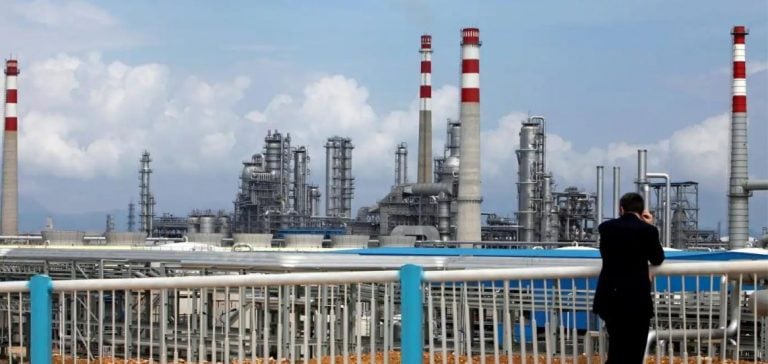The Asian diesel market is experiencing renewed interest following the announcement of the Chinese government’s monetary stimulus program.
The plan, which includes a 50 basis point reduction in the reserve requirement ratio and a 30 basis point cut in the medium-term lending rate, is designed to improve liquidity and support a still-fragile economy. These measures had an immediate impact on diesel prices, particularly in China, where industry and transport are key consumer sectors.
The construction sector, which accounts for around a third of China’s diesel consumption, is anticipating a recovery under the new policy.
This potential recovery is leading to a reduction in Chinese diesel exports, which is boosting regional prices.
However, the effect of this recovery remains uncertain, as economic confidence in China is still fragile, not least due to the debt crisis in the real estate sector.
Fundamentals remain weak
Although the Chinese stimulus has temporarily boosted the market, the fundamentals of the diesel market in Asia remain weak.
The market structure is still in contango, indicating persistent weakness in short-term demand.
In this configuration, spot prices are lower than future prices, a situation often synonymous with high inventories and reduced demand.
This phenomenon also complicates the arbitrage of cargoes to Western markets, reducing commercial opportunities.
In September, refiners’ margins fell significantly, prompting some of them to consider scaling back their operations.
For example, the differential between 10 ppm sulfur diesel FOB Singapore and swap Dubai contracted by 15.52% compared with August, reflecting a marked slowdown in demand.
This contraction comes on top of a prolonged period of contango, which has persisted since August.
Indonesia’s role in supporting the market
At the same time, Indonesia has provided temporary support for the market.
Pertamina, one of the country’s leading energy companies, recently launched a tender for the purchase of 800,000 barrels of high-sulfur diesel, for delivery in early October.
This marks a one-off return to demand, as the country has sharply reduced its diesel imports due to the increase in its biodiesel blends.
However, this renewed interest is not representative of a long-term trend.
Indonesia has postponed the maintenance of its Cilacap refinery until January 2025, which could affect demand for diesel over the coming months.
In addition, import volumes remain lower than in previous years due to the increased promotion of renewable fuels in the country.
Uncertain outlook for the Asian market
The impact of China’s economic recovery on the diesel market remains limited by several factors.
The economic situation in China, although stimulated by monetary measures, is suffering from a crisis of confidence linked to property debt.
This has a direct impact on domestic demand, particularly in the transport and construction sectors, two mainstays of diesel consumption.
The debt crisis in the real estate sector has also led to a reduction in investment and a slowdown in construction projects, limiting the positive impact of the recovery on diesel demand.
In addition, the overall outlook for the diesel market in Asia remains fragile, with uncertain demand and reduced exports from major producers such as China and South Korea.
In October, a reduction in shipments is expected due to the harvest season and tighter export quotas.
Korean refiners, meanwhile, have also reduced their production rates due to less attractive refining margins.
Without a sustained upturn in demand, particularly in China and Indonesia, it is unlikely that the diesel market will quickly emerge from this phase of weakness.
The overall outlook therefore remains cautious, with increased volatility in the months ahead.





















